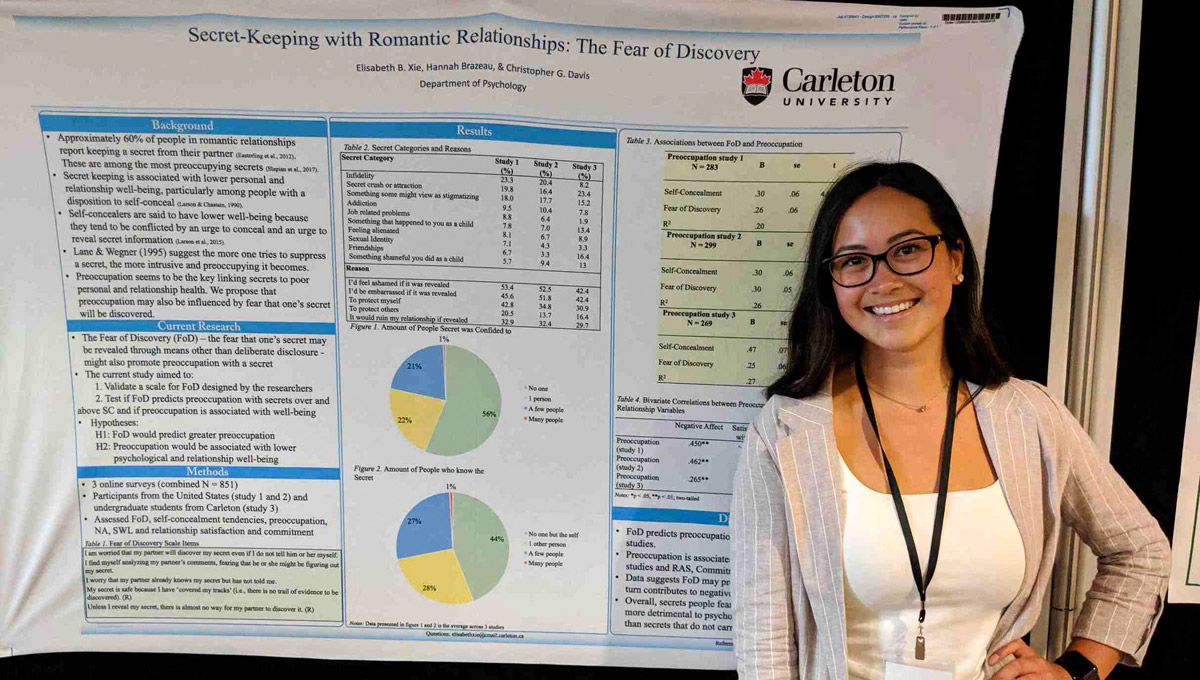By Leah Coppella
Carleton University hosted the International Association for Relationship Research (IARR) Mini-Conference from June 20 to 22, 2019 and its theme, “Positive Action in Relationships,” took research from textbook to the real world.
From increasing positivity in relationships such as gratitude and personal development, to the components of relationship functioning, like motivation and cognition, the conference attempted to spark discussion on many aspects of romantic unions.
Carleton PhD student Chantal Bacev-Giles presented research investigating the role of daily relationship threats as obstacles to trying new and exciting activities with a romantic partner.
Bacev-Giles says that it is known that people gain many positive benefits in their relationships when they add growth via new experiences. She took a unique approach by creating a 21-day diary study of community couples, looking at how daily relationship threats such as fearfulness and anxiousness can add negative consequences to engaging in new and exciting couple activities.

Chantal Bacev Giles
She is continuing the research in the Positive Activities in Intimate Relationships (PAIR) lab at Carleton, directed by conference organizer Cheryl Harasymchuk.
Master’s student Elisabeth Bailin Xie also presented at the gathering. She had the opportunity to take part in a Carleton University Research Opportunity (CUROP) in the third year of her undergrad and she began looking into secret keeping in romantic relationships.
Since then, she has been working with supervisor Chris Davis and PhD psychology student Hannah Brazeau, to research the topic further.
“There is other research that suggests that secret keeping is harmful for the secret keeper’s relationship and well-being. My research explores why it is harmful. Specifically, the mechanisms for why secret keeping contributes to lower personal and relationship well-being,” Xie says.

Elisabeth Bailin Xie
Her research dives into the social context of secret keeping and, more specifically, a new construct she calls “fear of discovery’’ and a scale to measure it.
“Our research shows that the fear of discovery, which is the fear that your secret will be discovered through some means other than disclosing the information yourself, is contributing to negative consequences,” Xie says.
She conducted three studies to test the validity of the scale which showed that fear of discovery is, essentially, a new mechanism that contributes to the negative consequences of secret keeping in romantic relationships.
“The types of secrets that are more harmful are those that may be discovered through ways that have other means of disclosure, whether that’s text message or e-mail history,” she says.
Xie hopes that the research will have a major impact on romantic relationships in the real world. In addition to promoting awareness of the dangers of secret keeping, her research also points to the potential harm that “fear of discovery” can carry.
Friday, June 28, 2019 in Faculty of Arts and Social Sciences
Share: Twitter, Facebook



